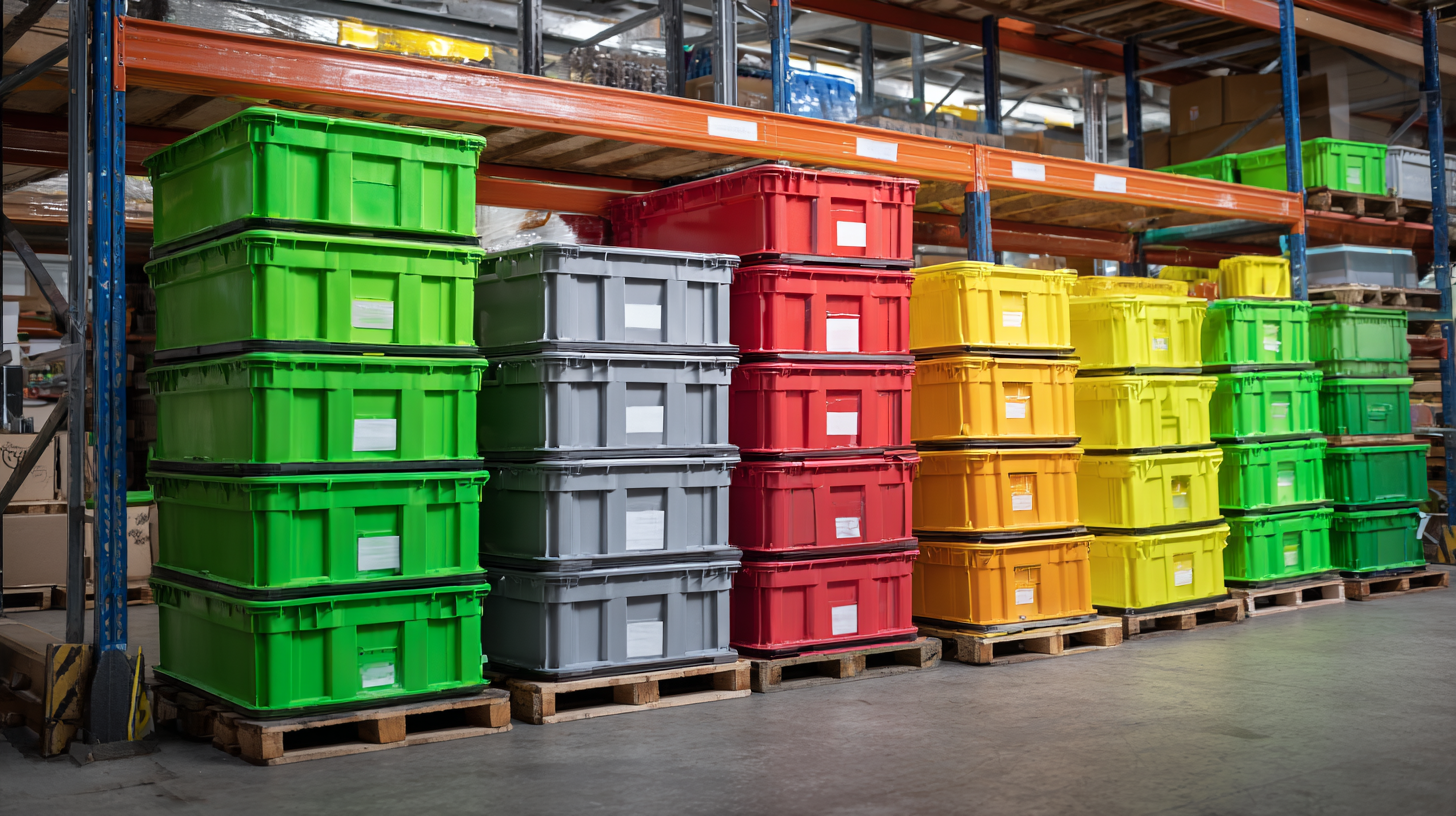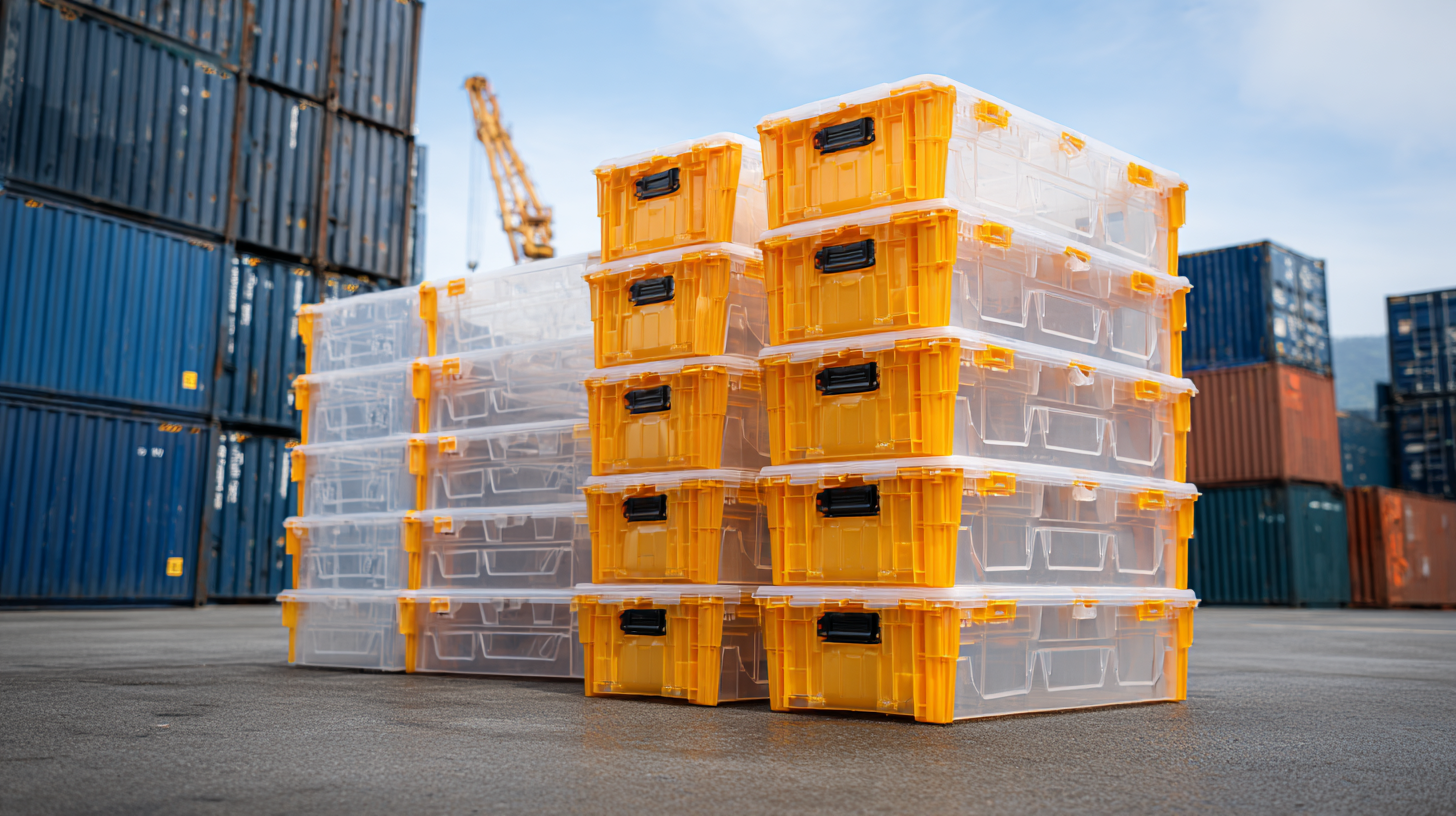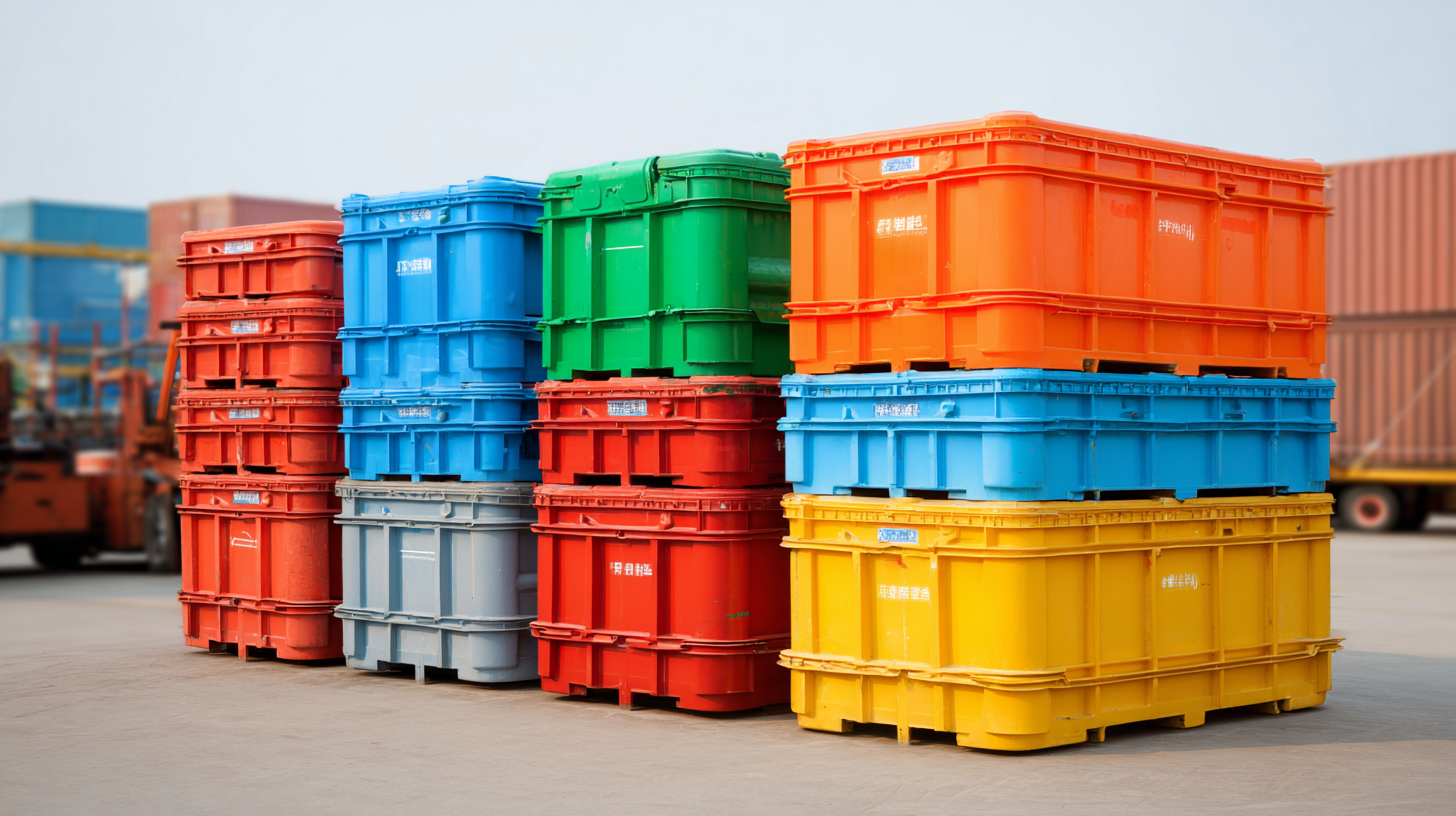Welcome to this website!

In today's rapidly evolving supply chain landscape, the demand for efficient storage solutions is more critical than ever. According to a report by MarketsandMarkets, the global market for stackable containers is projected to reach USD 9.8 billion by 2025, reflecting a compound annual growth rate (CAGR) of 5.2%. As companies strive to optimize their logistics and warehousing operations, selecting the right stackable container manufacturers becomes essential for ensuring quality, durability, and cost-effectiveness. This blog will explore the top five tips for choosing the best stackable containers manufacturers to help businesses stay competitive while meeting industry standards and consumer expectations. By focusing on the latest trends and innovative technologies in 2025, we aim to equip you with the insights needed to make informed decisions in your sourcing strategy.

When selecting stackable containers, understanding the key features that contribute to their quality is essential. According to a report from the Food and Drug Administration (FDA), well-designed stackable containers can reduce storage space by up to 40%, optimizing both logistics and efficiency in warehousing. The material used in the containers is crucial; high-density polyethylene (HDPE) and polypropylene are often recommended due to their durability and resistance to chemicals. A recent study by the Packaging Institute found that containers made from these materials have a 30% longer lifespan than those made from lower-quality plastics, highlighting the importance of material selection in maintaining product integrity.
Another critical feature to consider is the container's load-bearing capacity. A survey conducted by the Container Manufacturers Association revealed that containers specifically designed for stacking can hold weights of up to 600 pounds, making them ideal for industrial applications. Additionally, features such as interlocking designs and reinforced corners not only enhance stability but also promote easy handling. Manufacturers that prioritize these design elements are more likely to produce containers that meet industry standards and customer satisfaction, ensuring that businesses invest in products that truly deliver on quality and performance.
When selecting stackable container manufacturers, one of the most crucial factors to consider is their reputation in the industry. A manufacturer’s standing not only reflects the quality of their products but also their reliability and commitment to customer satisfaction. Companies with a strong reputation often have a history of meeting or exceeding industry standards and are well-regarded for their innovative designs and durable materials. Potential buyers should look for manufacturers with positive reviews and testimonials, as these insights can provide a clearer picture of product performance and customer experience.
Additionally, understanding a manufacturer's reputation is essential for ensuring long-term value. Well-established companies generally have a track record of providing excellent after-sales support, which is vital for resolving any issues that may arise post-purchase. Engaging with manufacturers known for their integrity and accountability can lead to satisfactory experiences, from initial inquiries to ongoing support. Overall, prioritizing manufacturer reputation can save time, reduce risks, and contribute to informed decision-making, ultimately leading to the selection of high-quality stackable containers that meet your specific needs.
When selecting durable and safe stackable containers, material choice plays a crucial role in ensuring product quality and user satisfaction. Recent evaluations show that materials such as BPA-free plastic, glass, and stainless steel are top contenders for effective storage solutions. In particular, glass containers have emerged as a preferred option due to their ability to resist stains, odors, and temperature extremes, making them ideal for a variety of kitchen applications.
According to industry reports, over 60% of consumers are now prioritizing glass or stainless steel options for their durability and safety features.

When selecting the best stackable containers manufacturers, one of the most crucial factors to consider is the manufacturer’s certifications and compliance with industry standards. Ensuring that a manufacturer meets the relevant certifications not only showcases their commitment to quality but also assures buyers that the products are safe and reliable for use. Certifications like ISO 9001 indicate robust quality management systems, while certifications specific to food safety, such as FDA or HACCP, are critical for manufacturers producing containers intended for food storage. By prioritizing manufacturers with these credentials, businesses can mitigate risks associated with product safety and quality.

Additionally, compliance with industry standards is essential for manufacturers to demonstrate their capability to meet customer requirements consistently. This compliance includes adhering to regulations governing materials, testing procedures, and environmental considerations. A manufacturer that complies with the appropriate industry standards is likely more dependable, as they are subjected to rigorous evaluations and audits. Therefore, when evaluating stackable container manufacturers, examining their credentials and commitment to industry standards should be a top priority. This due diligence not only enhances the integrity of your supply chain but also elevates the overall quality of your product offering.
As we approach 2025, the landscape of manufacturing technologies is evolving rapidly, significantly influencing the quality of stackable containers. Advanced technologies such as automation, artificial intelligence, and cutting-edge materials are playing a pivotal role in enhancing the production process. Manufacturers leveraging these technologies are able to fine-tune their operations, ensuring consistency and precision in their products. This not only leads to higher quality containers but also improves efficiency and reduces waste in the production line.
Moreover, the integration of smart manufacturing techniques allows for real-time monitoring and adjustments in the manufacturing process. By harnessing the Internet of Things (IoT), manufacturers can gather data insights to optimize their workflows and detect potential issues before they escalate. This proactive approach to quality control not only benefits the manufacturers but also assures consumers of the durability and reliability of the stackable containers they choose. As we look ahead, it will be essential for businesses to partner with manufacturers who are committed to adopting these advanced technologies to stay competitive in the market and meet the growing demands for high-quality products.
